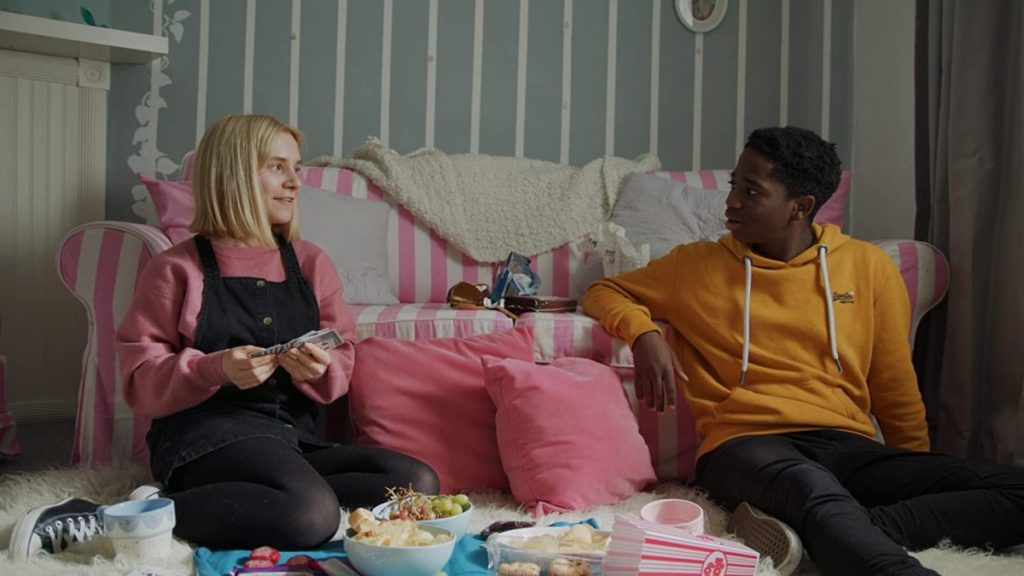For anyone who is living with depression, arguably the only thing worse than coping with mental illness is the lack of understanding from anyone who does not. Around the world, the conversation around depression and other mental health issues is growing. But there is still a perceived stigma around the subject, and all too often, someone who is suffering doesn’t get the support they need.
Faulty Roots, the first film from director, writer and producer Ella Greenwood, looks not only to encourage the conversation around mental health, but also to emphasise the importance of friendship and support, especially among young people. The film’s central character Lola, who Greenwood also plays, suffers from depression, and risks spending a long summer at home with her mother, played by Sarah Eastwood. Who means well for her daughter but can’t quite get to grips with Lola’s condition.
Lola reluctantly accepts a suggestion made by her mother, to visit her childhood friend Zack, played by Sani Thabo. Zack, it is revealed early in the film, is living with an incurable genetic condition, and as the two reconnect, they develop a great friendship and a close mutual understanding of each other’s situations.
The film covers a great deal of emotional ground in its 11 minute runtime. And Greenwood’s writing and direction handles Faulty Roots’ events and themes with great care and consideration. Given the main characters are living with serious illnesses, the film for the most part goes for a lighter tone than expected.
When discussing this film, Greenwood has explained that she wanted to show that someone living with depression is more than just the illness. And in Faulty Roots this is achieved through bright, blocky colours, and a sweet score from composer Gaby Ambler. Both offering a clear juxtaposition against the subject matter.
This contrast makes for an interesting watch, but it’s the chemistry between Greenwood and Thabo where Faulty Roots’ magic lies. The two actors are delightful to watch play off of each other for the brief screen-time they share. And the combined strength of their performances means that the short’s final movement carries a satisfying emotional weight. As well crafted as the film is, it would have been even better to spend more time with those characters together, so the news that this short is being adapted into a feature film is very welcome indeed.
Suffice it to say, Greenwood has created something truly special with Faulty Roots. She set out to make a film which both raises the conversation around mental health and support, and give a truly humanising depiction of a person living with depression. Not only did she achieve this with a flair beyond her newcomer status, but she has also created two utterly charming central characters within a disarmingly sweet and sincere screenplay, which is fully deserving of the plaudits it has already received.
Faulty the roots may be, but Ella Greenwood’s debut suggests she may be scaling some great heights in her filmmaking future.

